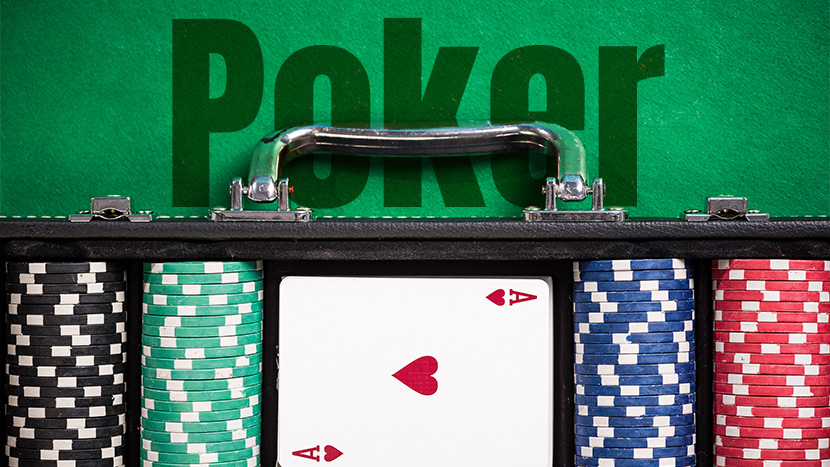Poker: A Mental and Physical Exercise Game
Research has shown many benefits of playing games. One such benefit is an improvement in cognitive development among players. Some of these developments involve better memory, mental flexibility, and reaction time.
The list of mentally beneficial games is quite extensive. From video games to strategy board games, there are some apparent genres on the list. However, a game that would be as surprising as it is effective is poker.
The effect of poker on the human mind has been a topic of discourse for a while now. Following extensive research, it has proven to be a form of mental exercise. This effect has become more widespread through iGaming, with many more players engaging in the game online. In playing poker online, Top10pokersites.net serves as a go-to for players looking for the best online poker sites.

Effect of Poker On Cognitive Development
The most mentally demanding games are those that integrate strategy, memory, and alertness, all of which the poker game offers.
The premise of a poker game involves observing and understanding an opponent’s behaviors. These are necessary for matching an opponent and winning the game. Unsurprisingly, all these, combined with other cognitive features, help improve a player mentally.
Poker has been discovered to be one of the most influential developers of logical thinking. Perhaps due to the level of alertness and awareness required to play the game. By mastering poker, a player develops the ability to maintain focus, regardless of distractions.
Brain Rewiring
According to neurological experts, poker creates new neurological pathways in the brain. These pathways are constantly developed, forming a protective layer called myelin. This fosters a quick transmission of information by the brain. As such, poker players can engage in complex processes much more effectively.
Playing poker can be likened to engaging in complex learning processes. And just like these processes, poker also helps rewire the brain. Unsurprisingly, poker enthusiasts also develop top-quality skills. Some of these skills include discipline, patience, and concentration. Developing competency in these skills is also necessary for other aspects of life.
Maintaining an Active Mind
Poker remains one of the most played games in the world. However, this does not take away how complex the game can be. Players combine skill, dedication, creative thinking, and practice to master the game.
As a result, a poker session can be mentally demanding and involves maintaining focus for extended periods. The best poker players channel abstract and creative thinking in predicting opponents. All this makes poker a mental exercise, improving a player’s mental health with more experience.
One prominent feature of a poker game is the chips. Players tend to roll chips with their fingers while waiting for an opponent’s move. Flipping chips also offer coordination benefits. Mastering this skill offers better hand-eye coordination and finesse.
Emotional Command
Aside from discipline and focus, a poker game has a significant emotional aspect. Players experience a wide range of emotions during a game of poker. These include happiness, anxiety, and even anger.
Players thrive by predicting their opponents from emotions and facial expressions. In the poker world, this strategy is called “a poker face.” As such, being successful as a poker player requires complete control of emotions. Having solid emotional command ensures player’s decisions are not influenced by feelings.
The ability to be in control of every emotion also serves as a mental exercise. Developing emotional control helps individuals in different facets of life. It develops the brain to make the best decisions without considering emotional factors.
Social Characteristics
There are different avenues to engage in a poker game. While some players frequent land-based poker rooms, others prefer competing online. Additionally, some players incorporate poker tables in their homes and host gaming sessions.
Whatever the avenue may be, one evident characteristic is interaction. Communication with opponents is also effective in predicting their hands and subsequent moves. Chatting at the table helps a player grow specific social characteristics.
In the online sphere, there are communities where players traverse the social aspect of poker. This feature helps you learn more about the game. It has also been deemed effective in reducing pressure and anxiety.

Medical Benefits Poker
The most widespread medical benefit of Poker has been its impact on reducing the risks of Alzheimer’s disease. This neurodegenerative ailment can be gotten genetically. Additionally, there is currently no recognizable treatment for this disease.
However, cognitive sports such as poker can reduce the chances of this disease. This is according to a study carried out by Dr. Jeffrey Cummings. The neurologist revealed a 50% reduction in Alzheimer’s risks simply by playing poker.
Further studies have shown how effective card games are to the mental function of elders. Improving these functions helps limit the possibility of Alzheimer’s.
Aside from mental exercises and healthy eating , the social aspect of poker is also an effective preventive measure. Through poker, players interact with others and engage their emotions. They also control decisions in certain situations, all of which aid in fighting neurodegeneration.
Along with Alzheimer’s, playing poker also reduces the chances of other brain-related diseases such as dementia.
Final Thoughts
Poker is often seen as a game of luck, but it is also a game of skill. Playing poker can have a number of mental and health benefits. The game can help you improve your decision-making skills, math skills, and strategic thinking skills.
Poker can also help improve your memory and reasoning skills. Playing poker can also help relieve stress and anxiety. Add these benefits to the fact that players get to win real cash, then you begin to understand why it’s so popular.
































































































